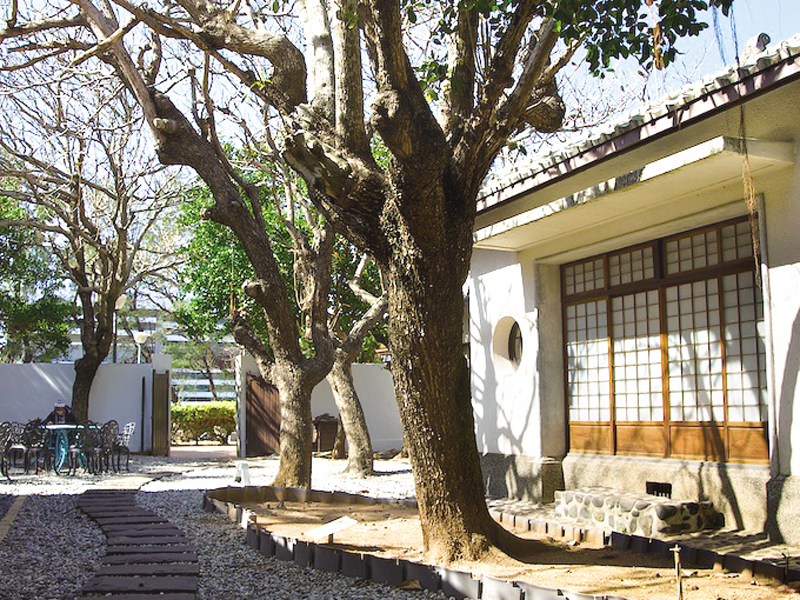Guanyinting Recreation Area
Attractions
Guanyinting Recreation Area is a multifunctional waterfront park that blends history with modern leisure. In addition to the historically significant Guanyinting, the area features a waterfront recreation zone, a sailing training center, an inclusive playground, basketball courts, a skating area, and a pet park, making it a popular spot for sports and seaside relaxation.
Guanyinting, originally built in the 35th year of the Kangxi era of the Qing Dynasty(1696) by Hsueh Kuei, then the deputy commander of the Penghu naval forces, holds the distinction of being the first temple in Penghu dedicated to Guanyin. Over the centuries, it has undergone multiple renovations and is now recognized as a county-designated historic site for its cultural and artistic value.
Inside Guanyinting, historical artifacts such as calligraphic plaques and couplets have been preserved. One notable example is a couplet inscribed on the altar of the Dragon King Temple, reading: "Auspicious clouds drift to the South Sea; divine nectar nourishes this land." The inscription dates back to the 29th year of the Qianlong reign (1764) and was commissioned by Tai Fu, a naval officer who oversaw the temple's restoration. This couplet remains the oldest preserved inscription at Guanyinting.
Two stone lion statues, sculpted using a mixture of gray mud and glutinous rice paste, guard the temple courtyard. Originally placed in front of the Penghu Naval Command Headquarters during the Qing dynasty, they were relocated and placed in front of Guanyinting in 1937 during the Showa era (Japanese colonial period).
Directly opposite Guanyinting stands the striking Xiying Rainbow Bridge, a steel arch bridge known for its vibrant, multicolored illumination at night. The reflection of its neon glow shimmering on the sea creates an enchanting and romantic atmosphere. The bridge also serves as a key venue for the Penghu Fireworks Festival in recent years. On fireworks nights, visitors can gather along the waterfront near Haitunting(海豚亭) to enjoy the dazzling display of fireworks lighting up the sky above the illuminated bridge.
Recommended Duration of Visit: 2 hours
Source: Penghu Travel, The Chronicle of Guanyin Pavilion, Magong City, Penghu County,Makung (1604–1945): A Study on the Spatial Modernization of a Traditional Taiwanese Town
Guanyinting, originally built in the 35th year of the Kangxi era of the Qing Dynasty(1696) by Hsueh Kuei, then the deputy commander of the Penghu naval forces, holds the distinction of being the first temple in Penghu dedicated to Guanyin. Over the centuries, it has undergone multiple renovations and is now recognized as a county-designated historic site for its cultural and artistic value.
Inside Guanyinting, historical artifacts such as calligraphic plaques and couplets have been preserved. One notable example is a couplet inscribed on the altar of the Dragon King Temple, reading: "Auspicious clouds drift to the South Sea; divine nectar nourishes this land." The inscription dates back to the 29th year of the Qianlong reign (1764) and was commissioned by Tai Fu, a naval officer who oversaw the temple's restoration. This couplet remains the oldest preserved inscription at Guanyinting.
Two stone lion statues, sculpted using a mixture of gray mud and glutinous rice paste, guard the temple courtyard. Originally placed in front of the Penghu Naval Command Headquarters during the Qing dynasty, they were relocated and placed in front of Guanyinting in 1937 during the Showa era (Japanese colonial period).
Directly opposite Guanyinting stands the striking Xiying Rainbow Bridge, a steel arch bridge known for its vibrant, multicolored illumination at night. The reflection of its neon glow shimmering on the sea creates an enchanting and romantic atmosphere. The bridge also serves as a key venue for the Penghu Fireworks Festival in recent years. On fireworks nights, visitors can gather along the waterfront near Haitunting(海豚亭) to enjoy the dazzling display of fireworks lighting up the sky above the illuminated bridge.
Recommended Duration of Visit: 2 hours
Source: Penghu Travel, The Chronicle of Guanyin Pavilion, Magong City, Penghu County,Makung (1604–1945): A Study on the Spatial Modernization of a Traditional Taiwanese Town
Visitor Information:Free Admission
- Phone
- 06-9216445
- Opening Hours
- Open 24 hours
- Theme Category
- Attractions Cultural Attractions Historical Attractions
Nearby Locations
TOURIST ATTRACTION
Distance from current location 580 m















